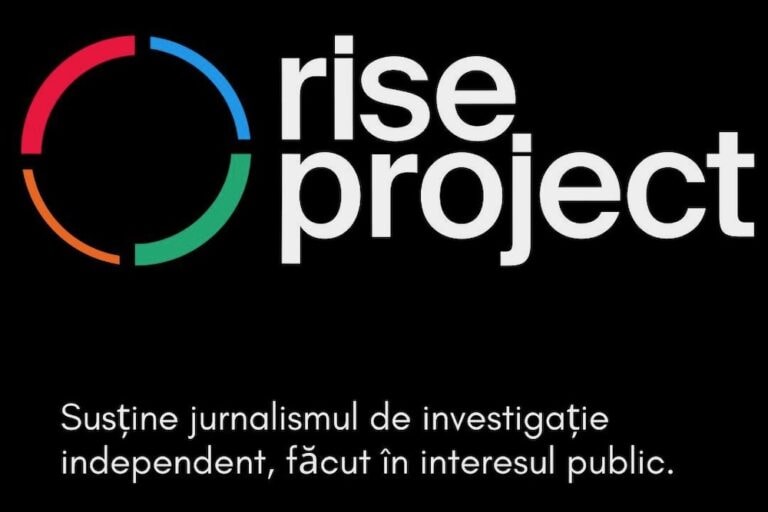(ARTICLE 19/IFEX) – The following is a 6 June 2002 ARTICLE 19 letter to the Romanian authorities calling for full and considered reform of the defamation provisions in Romania’s Penal Code: 6th June 2002 Members of the Romanian Parliament Dear Members of Parliament, ARTICLE 19, the Global Campaign for Free Expression, welcomes the fact that […]
(ARTICLE 19/IFEX) – The following is a 6 June 2002 ARTICLE 19 letter to the Romanian authorities calling for full and considered reform of the defamation provisions in Romania’s Penal Code:
6th June 2002
Members of the Romanian Parliament
Dear Members of Parliament,
ARTICLE 19, the Global Campaign for Free Expression, welcomes the fact that the Romanian government has initiated reform of the defamation provisions contained in the Penal Code in response to the most recent report of the Council of Europe Monitoring Committee (12 March 2002).
We understand that the Emergency Government Order no. 58/23, issued on 23rd May, to modify certain provisions of the penal code and the code of penal procedure, seeks to address the recommendations of the Council of Europe Resolution 1123 (1997), which called for reform of Articles 205, 206, 238 and 239. However, we regret that the proposed reform falls short of international standards and we urge the Romanian Parliament to take this opportunity to remove libel, insult and calumny from the Penal Code altogether.
ARTICLE 19 welcomes the proposal to remove Article 238 from the Penal Code which provides for punishment by imprisonment for up to five years for “prejudicing the honour of persons in positions of authority”. We also note the progress made towards meeting international standards by removing the sanction of imprisonment from Article 205 for insult by prejudicing “the honour or reputation of a person through words, gestures or by any other means, or by exposing that person to mockery â¦,” although we note that insult remains a criminal offence punishable by a fine.
However, even if these two Articles are amended, the Penal Code will still contain provisions which are in breach of international standards relating to freedom of expression and which should, therefore, also be amended or repealed.
Our recommendations for reform, set out below, are based on the ARTICLE 19 publication, Defining Defamation: Principles on Freedom of Expression and Protection of Reputation, which has been endorsed by, among others, the UN Special Rapporteur on Freedom of Opinion and Expression and the OSCE Representative on Freedom of the Media. Similar recommendations by ARTICLE 19 were made at the OSCE Supplementary Human Dimension meeting in Vienna in March 2001 and have been put forward many times by civil society organisations in Romania, including the Romanian Helsinki Committee and the Centre for Independent Journalism.
First, we regret the fact that pursuant to Article 206 of the Penal Code, calumny, which is defined as the “public statement or reproach of a certain fact which if true would expose that person to criminal, administrative, or disciplinary punishment or to public contempt”, would remain a crime punishable by a prison term of between 2 months and 2 years. The reduction of the prison term from the current period of 3 months to 3 years, which is the only amendment to this Article proposed by the Emergency Government Order, is wholly inadequate and will not bring the law into line with international standards.
Principle 4(b)(iv) of Defining Defamation states:
Prison sentences, suspended prison sentences, ⦠excessive fines and other harsh penalties should never be available as a sanction for breach of defamation laws, no matter how egregious or blatant the defamatory statement.
Similarly, Article 239 of the Penal Code, which provides protection for public servants while discharging his/her duty against insult or libel remains punishable by prison. Again, the Emergency Ordinance simply proposes to reduce the maximum prison term which can be imposed for such a crime from 4 to 3 years.
Furthermore, ARTICLE 19 is alarmed at the proposal to introduce a new provision to punish “a threat made against a public servant who holds a position involving the exercise of the state authority, in their line of duty or related acts committed in their line of duty”. It is proposed that such a crime be punished by imprisonment of 3 months to 4 years.
The exact meaning of the word ‘threat’ in this new provision is not clear and therefore leaves the article open to abuse. Furthermore, the superior protection provided to public servants by Article 239 and this new provision is wholly unjustified and in breach of international standards.
The European Court of Human Rights has indicated that the prosecution of journalists who simply criticise politicians or government officials is an interference with free expression that is never “justified in a democratic society”. (Castells v. Spain, 23 April 1992, No. 236, 14 EHRR 445).
In addition, Principle 4(b)(iii) of Defining Defamation states:
Public authorities, including police and public prosecutors, should take no part in the initiation or prosecution of criminal defamation cases, regardless of the status of the party claiming to have been defamed, even if he or she is a senior public official.
ARTICLE 19 also regrets that the Emergency Government Order makes no mention of Article 236 (offence against insignia) and 236 (1) (defamation of the country or nation) which provide for prison sentences of up to one year and 3 years respectively.
Principle 2(b) of Defining Defamation states:
Defamation laws cannot be justified if their purpose or effect is to protect ⦠the “reputations” of entities other than those which have the right to sue and to be sued. In particular, defamation laws cannot be justified if their purpose or effect is to:
ii. protect the “reputation” of objects, such as State or religious symbols, flags or national insignia;
iii. protect the “reputation” of the State or nation, as such;
ARTICLE 19, along with many other international organisations, has consistently called upon the Romanian government to abolish criminal defamation. The Emergency Government Order is clearly an attempt to respond to a renewed surge of domestic and international criticism following the most recent Council of Europe Monitoring Committee report, which stated that the Romanian Penal Code had in fact been amended in line with Resolution 1123 (1997). We urge the Romanian Parliament to highlight the deficiencies in the government’s proposals and to call for considered and full reform of the Penal Code according to Romania’s obligations under international law.
Yours sincerely,
Luitgard Hammerer
Head of Europe Programme
Recommended Action
Similar appeals can be sent to:
Romanian Chamber of Deputies
Law Committee, tel: +40 1 402 11 56
Human Right Committee, tel: +40 1 312 45 94
Please copy appeals to the source if possible.


